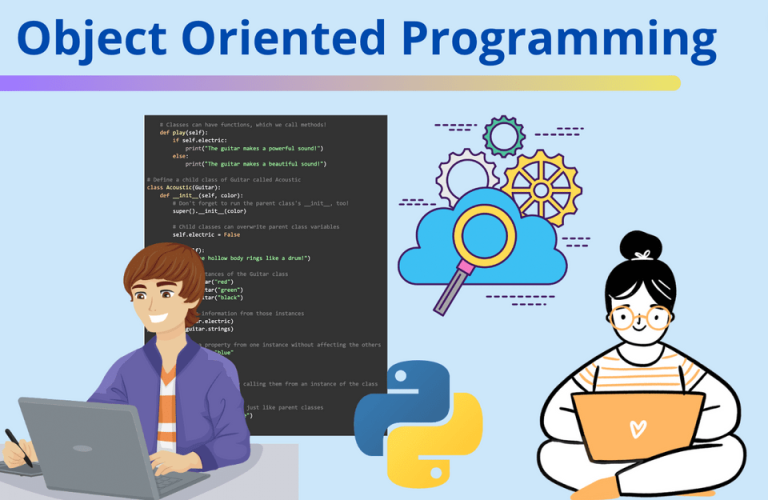The Evolving Role of AI in Gaming: Enhancing Player Experiences
In recent years, gaming technology has experienced a transformative evolution, reshaping how players engage with digital worlds and altering the landscape of interactive entertainment. The integration of Artificial Intelligence (AI) stands as a cornerstone, continually reshaping how players engage and interact within virtual worlds. From its humble beginnings to the cutting-edge applications of today, AI has played a pivotal role in augmenting gameplay experiences, breathing life into characters, environments, and the intricate systems that govern interactive entertainment.
Technological Innovations in Gaming
Over the years, gaming has witnessed an impressive array of technological advancements that have reshaped the landscape of interactive entertainment. From groundbreaking consoles to innovative accessories and tools, these advancements have elevated gaming experiences to unprecedented heights.
Gaming Consoles and Hardware Evolution
The introduction of gaming consoles like Nintendo Switch marked significant milestones in gaming history. These platforms not only offered enhanced graphical capabilities and processing power but also introduced iconic franchises that have become synonymous with gaming culture.
Networking and Connectivity
The advent of gaming VPNs has had a significant impact on online gaming experiences. These VPNs, from reliable brands such as ExpressVPN, optimize network routes, reduce latency, and enhance security, providing a smoother and more secure online gaming environment. They enable gamers to bypass geographical restrictions, access region-locked content, and ensure seamless multiplayer experiences across continents.
Tech-Driven Enhancements
Faster processors, high-definition displays, and solid-state drives (SSDs) have not only improved gaming performance but have also paved the way for quicker load times, stunning visual fidelity, and more expansive open-world environments.
AI’s Historical Footprint in Gaming
The incorporation of AI into games traces its roots to the early days of the industry, primarily focused on creating opponents with basic decision-making abilities. Games like “Space Invaders” and “Pac-Man” introduced primitive AI systems to challenge players, albeit with predictable patterns and limited behavioral diversity.
As technology advanced, so did AI’s role in gaming. Titles like “F.E.A.R.” and “Black & White” showcased AI-driven adversaries capable of adaptive behavior, learning from player actions to create more dynamic and challenging experiences. These milestones marked a shift towards AI-driven gameplay elements that adapted to player strategies and choices.
Current Applications and Limitations
Presently, AI in gaming has evolved exponentially, influencing various facets of game development and player experiences. It has transitioned beyond simply powering adversaries to orchestrating complex narratives, generating procedural content, and personalizing gameplay experiences based on individual preferences.
However, amidst its advancements, limitations persist. Achieving a delicate balance between AI sophistication and maintaining predictable gameplay remains a challenge. The quest for unpredictability often conflicts with the need for structured gaming experiences. While players seek novelty and adaptive challenges, they also require a sense of control and understanding within the game environment.
AI’s Influence on Player Experiences
AI’s impact on gaming experiences is multifaceted and pervasive:
- Immersive Realism: AI-driven NPCs and environments contribute to heightened realism, offering dynamic interactions and responsive worlds that adapt to player actions.
- Personalization and Adaptation: AI algorithms analyze player behavior to tailor experiences, adjusting difficulty levels and recommending content to suit individual preferences.
- Innovative Gameplay Mechanics: Procedural content generation diversifies gameplay, creating unique experiences and expanding gaming possibilities.
Future Trajectory: Balancing Innovation and Predictability
The future of AI in gaming promises unparalleled advancements, pushing the boundaries of what’s conceivable. AI-driven storytelling, emotional intelligence in NPCs, and seamless player-game interactions are on the horizon. Yet, the challenge remains: How can developers maintain a delicate equilibrium between AI’s dynamism and players’ desire for coherent, understandable gaming experiences?
The synergy between AI and gaming stands poised to revolutionize entertainment, but it necessitates a thoughtful convergence. Experts in the field stress the importance of utilizing AI to enhance experiences while ensuring that the core essence of gaming—enjoyment, challenge, and immersion—is preserved.
As we celebrate the amalgamation of AI and gaming on this journey, it’s evident that the trajectory ahead is one of both innovation and introspection. The evolution of AI in gaming isn’t just about technological advancements; it’s about crafting experiences that captivate, challenge, and resonate with players on a deeply personal level.
In this ongoing narrative of AI and gaming, the tale isn’t solely about technological prowess but also about the human element—how these advancements complement, rather than overshadow, the joys of interactive entertainment. The future beckons with limitless possibilities, where AI augments human creativity, offering a canvas for innovation while preserving the very essence that makes gaming an art form cherished by millions worldwide.




![How to Transfer Data from Android to iPhone [All Models Supported]](https://fameimpact.com/wp-content/uploads/2023/12/Android-to-iPhone.webp)


